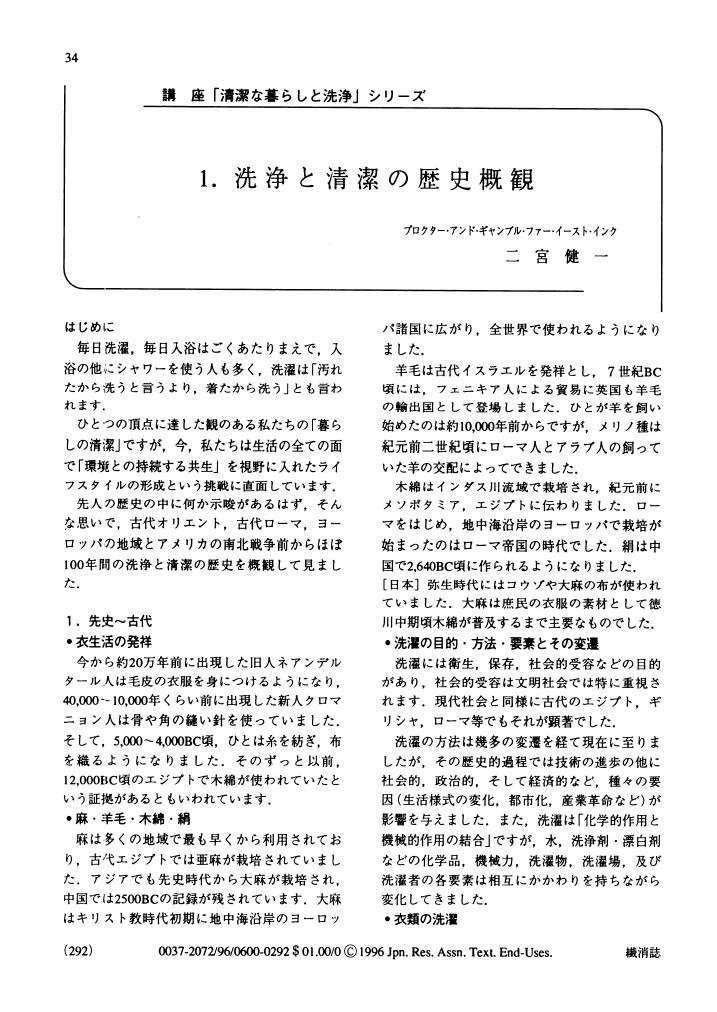30 0 0 0 OA 1.洗浄と清潔の歴史概観
- 著者
- 二宮 健一
- 出版者
- 一般社団法人 日本繊維製品消費科学会
- 雑誌
- 繊維製品消費科学 (ISSN:00372072)
- 巻号頁・発行日
- vol.37, no.6, pp.292-299, 1996-06-25 (Released:2010-09-30)
- 参考文献数
- 9
- 著者
- 二宮 健一
- 出版者
- 日本文化人類学会
- 雑誌
- 日本文化人類学会研究大会発表要旨集
- 巻号頁・発行日
- vol.2013, 2013
1906年に米国で生じたペンテコスタリズムは、その後グローバルに拡散し、多様なローカル化の様相を見せている。ジャマイカの場合、ペンテコスタリズムは、アフリカ的信仰形態とキリスト教が習合した「リバイバリズム」の信者を吸収して成長した。本発表では、ジャマイカのペンテコステ派教会はリバイバリズムを蔑視、批判する一方、その音楽活動はリバイバリズムの影響を残し、一部で両者の交流も創出していることを示す。またこの考察を通して、ペンテコスタリズムと在来宗教の関係を音楽的側面から分析するアプローチの可能性を検討する。
- 著者
- 二宮 健一
- 出版者
- 京都大学東南アジア研究所
- 雑誌
- Kyoto Working Papers on Area Studies: G-COE Series
- 巻号頁・発行日
- vol.92, pp.1-35, 2010-06
Dancehall Gospel is a form of Gospel music in Jamaica. As the name suggests, it has the musical character of Dancehall music, which is the mainstream form of popular music in Jamaica. Dancehall Gospel singers are called 'Gospel Deejays'. One of the characteristics which sets Dancehall Gospel apart when it is compared with other forms of gospel music in Jamaica is that while gospel singers and church choirs are predominantly female, most gospel deejays are male. This paper examines the image of the 'Christian' male, which Dancehall Gospel represents, and considers the influence that it has on Jamaican church communities. This paper also aims to construct a conceptual framework within which to study the influence of the male image on social groups. Chapter 1 reviews three major perspectives found in Caribbean masculinity studies and shows that they lack effective concepts with which to study the influence of a male image on social groups. Chapter 2 presents the background of Dancehall Gospel. It examines the male image represented by church and Dancehall respectively. Chapter 3 examines the male image created by Gospel Deejays through their stage performances and considers the influence of that male image on church communities in Jamaica. The last chapter makes several notes to construct the conceptual framework to study the influence of the male image on social groups.
